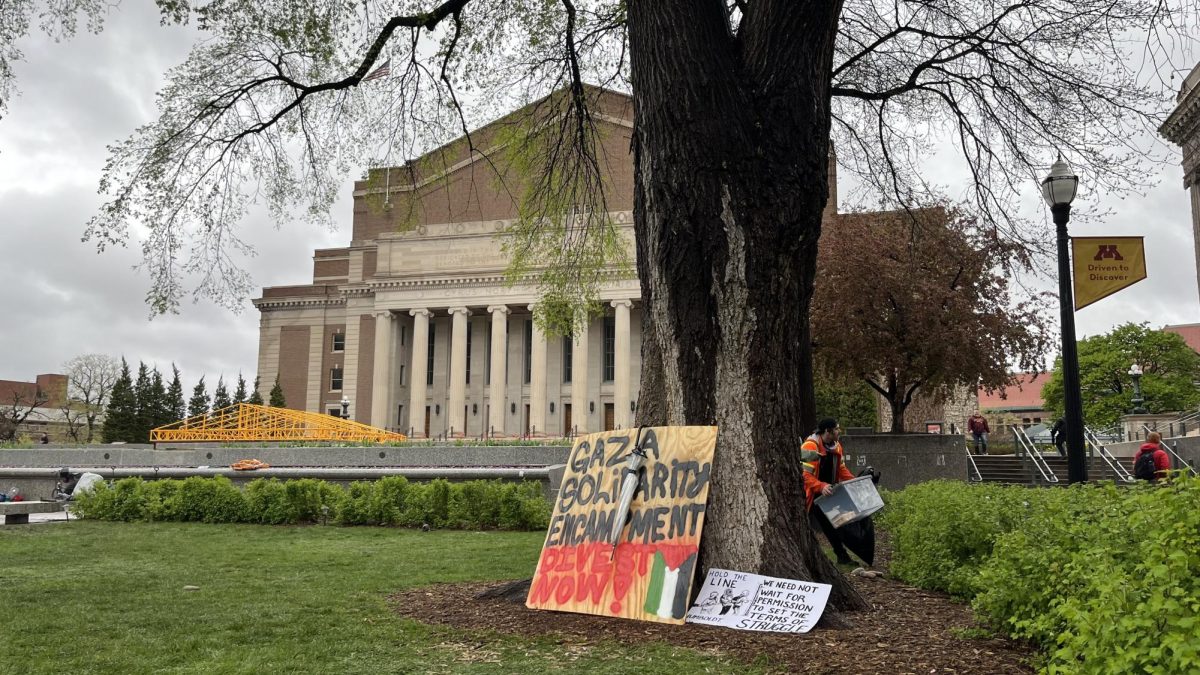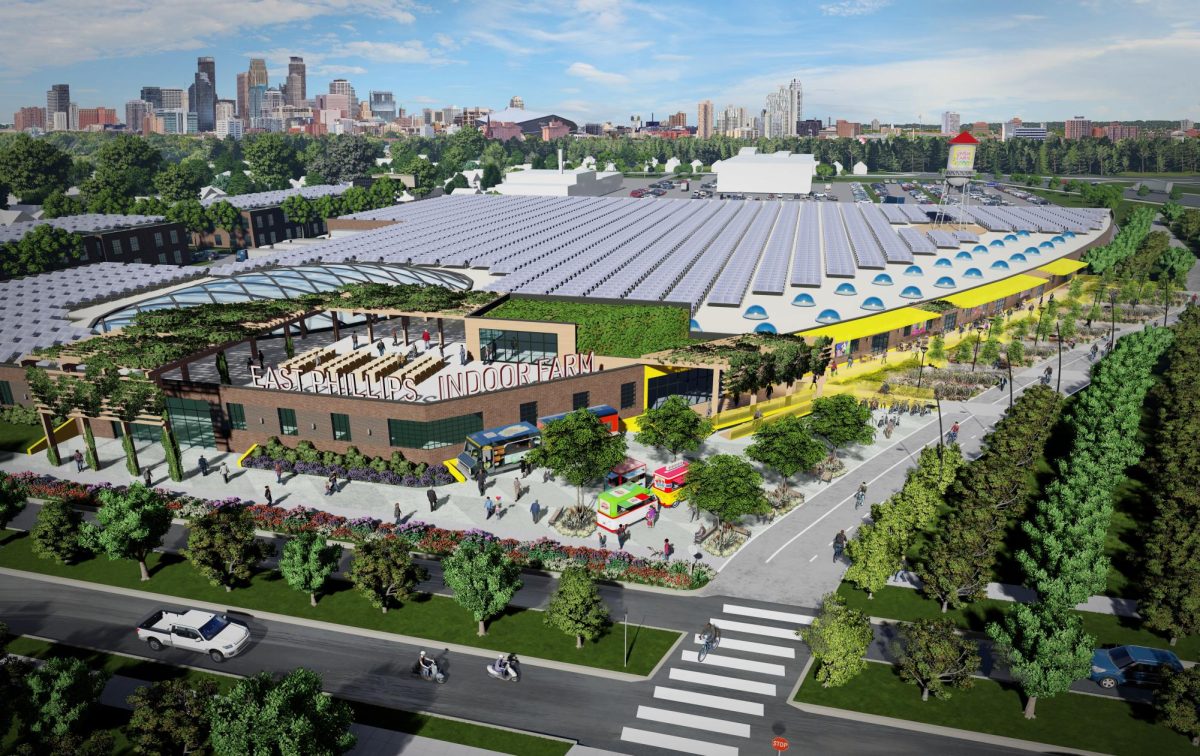The Minneapolis City Council approved an agreement with the East Phillips Neighborhood Institute (EPNI) on Sept. 7 to allow the group to purchase the former Roof Depot site, bringing a decade-long fight with the city to a close.
The city planned to demolish the Roof Depot building and turn the 7.5-acre site into a consolidated public works facility. However, many East Phillips residents pushed back on the project due to fears of potential pollution demolition would cause, as the building sits on high levels of arsenic from a manufacturing plant that leaked chemicals into the neighborhood for decades.
East Phillips has already been affected by high pollution levels and low air quality. In comparison to other neighboring areas, East Phillips experienced much higher levels of air pollution, according to the Minnesota Department of Health. This led to a high number of deaths and illnesses related to air pollution such as asthma, according to a 2021 City Council analysis.
With the City Council approving EPNI’s purchase of the area, residents no longer have to worry about further air pollution from the site’s demolition, according to Joe Vital, an EPNI organizer and former East Phillips resident.
“The first worry of the neighborhood was the demolition of the site,” Vital said. “People were very mad and up in arms to stop something like that from happening, especially community members who have lost family members to environmental-related deaths.”
The main goal with the purchase of this site was to create an urban farm in place of the Roof Depot site, according to EPNI’s website.
The urban farm will include a number of different amenities such as affordable housing, training centers and a solar energy hub.
Previously, EPNI had been raising money for the project in a number of ways, including a GoFundMe campaign that raised more than $600,000 from individual donations alone since 2020, according to Vital.
Additionally, EPNI recently received several donations from other neighborhood organizations including Lake Street Council and the Minneapolis Foundation, Vital said.
Prior to the approval of the purchase, EPNI was required to have $3.7 million raised by Sept. 7 in order to fulfill the purchase agreement’s requirements. This was the original purchase agreement, meaning Minneapolis and EPNI had to agree on a deadline for EPNI to be ready to put down the money needed for the purchase.
After meeting with the city in August, EPNI was given this deadline and was concerned about the quick turnaround, according to Vital. Further discussion led to a two-month extension to Nov. 8.
The extension comes after the city refused to allow EPNI members into the Roof Depot building to inspect it and evaluate renovation costs that would impact the purchase price, according to EPNI Board President Dean Dovolis.
Local community members and businesses such as Abdirahman Kahin, owner of Afro Deli, have come forward to collectively fund the $3.7 million, Dovolis said. Although the money has potentially been raised, EPNI is working to finalize pledges with donors to show its necessary proof of finances before its November deadline.
The state already allocated $6.5 million toward purchasing the building and paying for the city to build its public works facility elsewhere, approving an additional $5.7 million next year that is contingent on EPNI raising its agreed-upon amount, according to Dovolis.
Members of EPNI are still concerned about waiting months for their Roof Depot purchase to be finalized. The organization is currently pushing to change the current agreement to receive the additional state funding without the requirement of community fundraising, Vital said.
“We definitely trust our state partners to come through but the caveat is that the deed will be in our hands until 2024,” Vital said. “We can still work and start developing things, but the remaining $5.7 million is deposited to the city from the state.”
Despite the hurdles, Dovolis expressed his gratitude for the opportunity EPNI has been given.
“It’s a whole project envisioned sitting in my head that’s slowly now being realized,” Dovolis said. “Every community member contributed to that vision that now is becoming one unified vision of what we’re going forward with.”
All the visions he had with this project are now being shared, bringing the community even closer together than they were previously, Dovolis said.
According to Madeline Sowers, a second-year student at the University of Minnesota studying environmental geosciences, air pollution and environmental advocacy like EPNI’s not only protects residents in East Phillips but also works to prevent environmental harm to several Minneapolis communities, including the University.
“If the Roof Depot site was torn down, it wouldn’t just harm the plant life, it would harm the animal life, it would harm human lives,” Sowers said. “Increasing the air pollution will do a lot of damage to the surrounding environments, including the University.”






















